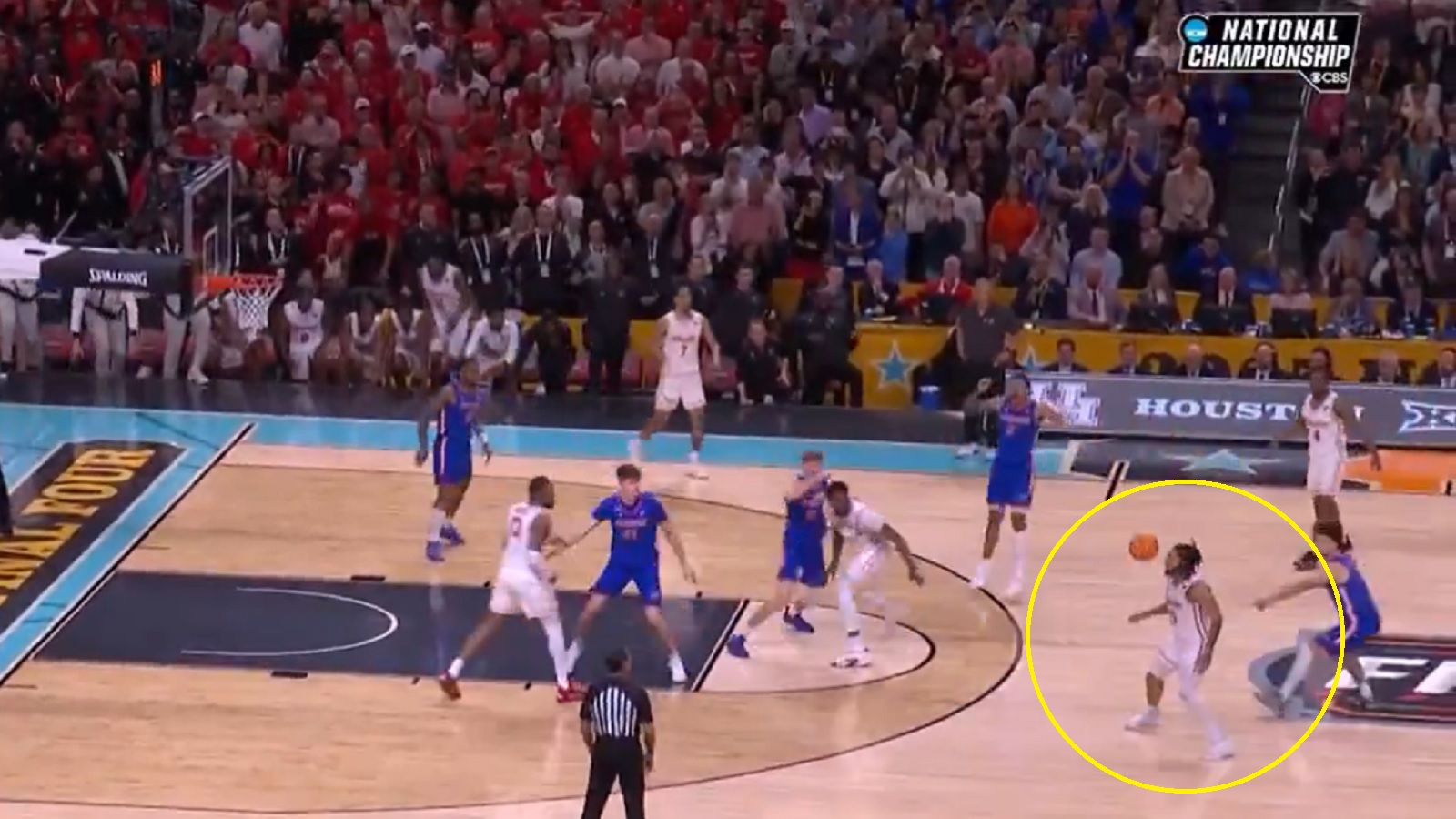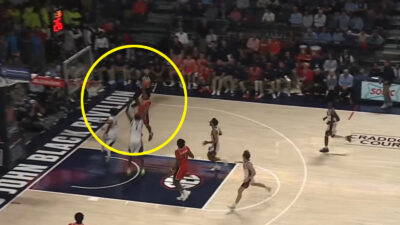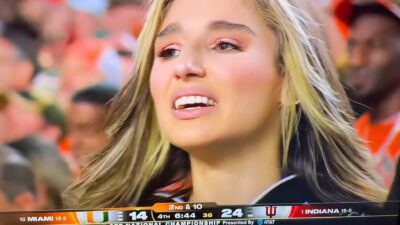Houston lost to Florida 65-63 in the national championship game on Monday night, and they went down with a whimper as they failed to get a shot off before the buzzer. Emanuel Sharp got the ball and was ready to attempt a 3-pointer, but he decided not to shoot the ball despite elevating. He then let the ball go as he returned to the ground but realized he could not touch the ball. As a result, Florida was able to jump on the ball and run out the time in the game to win.
The announcers for the game correctly noted that Sharp could not touch the ball because it would have been considered traveling. Some fans watching the game didn’t understand why Sharp could not touch the ball.
"FLORIDA IS BACK ON TOP OF THE COLLEGE BASKETBALL WORLD!" pic.twitter.com/IeLecOAcSb
— CBS Sports (@CBSSports) April 8, 2025
In basketball, players are not allowed to pass the ball to themselves, and what Sharp did would have amounted to passing to himself had he gone after his own ball that he dropped.
The exact case play is highlighted under NCAAM Case Play A.R. 9-13:
NCAAM Case Play A.R. 9-13 pic.twitter.com/QpFu6fOH0J
— Chip Clark (@OfficialChipC) April 8, 2025
NCAAM Rule 9-5.3 states: “A player who catches the ball with both feet on the playing court may pivot, using either foot. When one foot is lifted, the other is the pivot foot”.
— Chip Clark (@OfficialChipC) April 9, 2025
When you jump off both feet while holding the ball, the rule interpretation is essentially that both…














